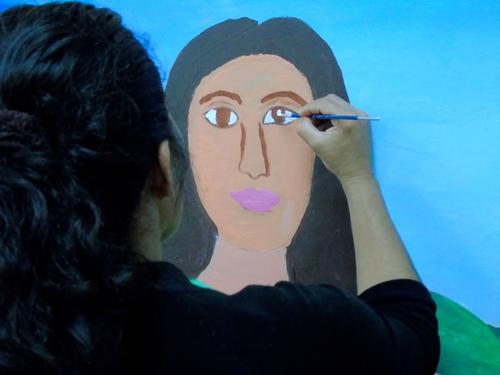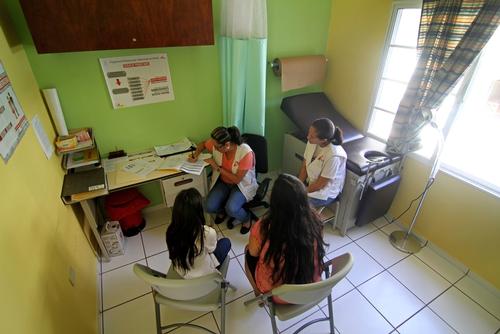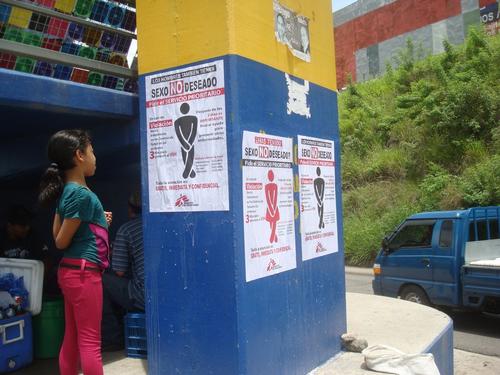During 2016, MSF expanded its activities in the Honduran capital, Tegucigalpa, and its sister city Comayagüela, where it provides mental healthcare for victims of various types of violence, including kidnapping, extortion, assault, threats and other high-impact violent events.
"We are talking about people who have suffered directly from these violent acts," says MSF mental health supervisor Edgard Boquín, "but also about the relatives of those affected, as well as people who have witnessed murders or other violent acts, who are often forced to leave their homes and go into hiding."
In 2015, MSF teams provided mental healthcare to 158 patients who had been victims of this kind of violence, but in 2016 the number jumped to 340 – an increase of 117 per cent. Given the extent of the violence n Honduras, the teams estimate that there are many more people in need of support. "We know that this is just the tip of the iceberg," says Edgard.
The consequences of violence
In Honduras, violence is so common that it's become an everyday occurrence. As a result, people often ignore its consequences and fail to recognise the impact it has on their lives, both in the short- and long-term.
People's reactions vary, but many are left struggling to get on with normal life. "These events can be very traumatic and stop people from functioning normally," says Edgard. "Some symptoms appear very fast, such as acute stress, which manifests in feelings of anxiety. Some people have serious difficulties with their sleep patterns, including insomnia and nightmares. Others have flashbacks – or recurrent memories – during the daytime, making them relive the experience."
MSF teams provide support to help prevent these symptoms from turning into something more serious. "When people don't receive care in time, they can develop severe depressive symptoms, acute anxiety or episodes of post-traumatic stress, requiring psychiatric or medical support," says MSF mental health advisor Juan Carlos Arteaga.
MSF's mental health teams offer individual sessions, group sessions and activities such as psychosocial workshops. Most patients attend between one and eight sessions in total.
"We try to work on the emotions, feelings and thoughts that people experience as a result of what happened to them," says Edgard. "We use cognitive behavioural therapy to help patients take the detrimental elements and replace them with positive coping tools, such as anxiety control, breathing and relaxation techniques, or by making small life plans which will allow them to cope with their environment again."
Support networks are vital
The teams also provide patients with information about other types of assistance available, including refuges, relocation to other parts of the country, social protection and legal advice.
MSF's experience shows that the more external support people have, the better their chance of recovery. "Patients can leave the clinic with a clear notion of how to improve their mental health, but if every day they face a threatening situation, with no way out, then it's far more difficult for them to recover," says Edgard. "Helping patients identify an external support network – for the care of their health or for other immediate needs – has produced very good results in their recovery."
Since 2011, Médecins Sans Frontières (MSF) has been providing its ‘servicio prioritario’, or priority service, in collaboration with the Honduran Ministry of Health, offering emergency medical and psychological care to victims of violence, including sexual violence. This free, confidential, one-stop service is available at two health centres and in Tegucigalpa’s main hospital.






